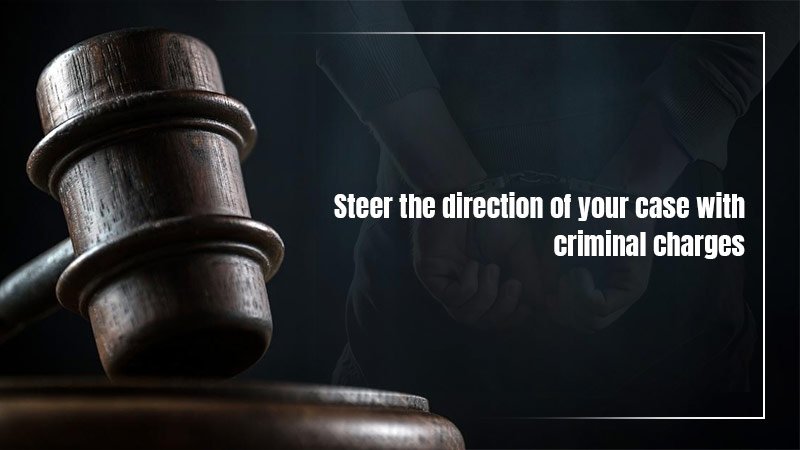How to Find the Right Bankruptcy Lawyer for Your Needs
Navigating financial troubles is pretty tough today. You have unsettled student loans, your car loan is pending, and your mortgage is overdue. But what if your salary falls so low that you cannot pay your loans?
A quick answer—you can file for bankruptcy. And fortunately, you won’t worry about losing your hard-earned home or car. But bankruptcy laws have many complications. To successfully navigate the bankruptcy filing process, you must find the right bankruptcy attorney. You’ll be disclosing a series of secret financial information to your bankruptcy lawyer, and you want to find someone you are comfortable with and can trust.
This is why there are different lawyers for different cases and reasons.
In addition, note that a general practitioner of law has no specialties in bankruptcy law. Principles in the field of bankruptcy correlate, and a good lawyer knows how. Only hire a specialty in handling bankruptcy disputes. Many lawyers will refuse bankruptcy cases if they don’t often practice. Here is a head start information to ensure you select the right bankruptcy lawyer.
Where You Should Start
When selecting a bankruptcy lawyer, observe two critical steps, search for potential candidates and vet them; then, list down multiple lawyers that meet your specification and schedule them for interviews for closure.
To find and vet potential candidates, you may rely on word of mouth. That involves asking leads from relatives, family, and friends. In addition, check the homeowner’s association board for prospective lawyers.
Check reliable rating websites like Legal Services Corporation and American Bar Association when interviewing potential picks. Martindale- Hubbell is also helpful when sampling affordable lawyers.
Pose Relevant Questions for Potential Lawyers
Your primary concern is if a particular lawyer is competent enough to handle your case in your interview sessions and be willing to solve your case satisfactorily. To fulfill these factors, observe the following questions closely.
First, check with your lawyer if your case is qualified and let them define your bankruptcy level (chapter 7 or chapter 13).
- Find out if they’ve handled similar cases satisfactorily in the past.
- How extensive is the lawyer’s working network or affiliate firm? The larger the firm, the more and better their resources.
- Do they have charge policies for phone calls, and how fast do they respond to them?
- How far will the attorney push your case? Will they be present in court? How far will they go filing paperwork?
The bottom line is hiring a bankruptcy lawyer with your best interest at heart. Someone that can push boundaries and win the case. Once you’re done interviewing, have the recordings on paper or a virtual sheet. Then, find out those that were keen on your queries. After that, seclude
attorneys that ‘feels’ trustworthy. Here are vital factors you should consider:
Affordability:
The lawyer’s cost is most worth considering, and A reasonable attorney should fit your finances. This category of bankruptcy lawyers charges reasonable fees. In addition, they may offer low, upfront payments to get the case moving.
But in all your dealings, keep from ‘bankruptcy mills.’ To discern a mill, check whether they advertise heavily, deal in large-volume bankruptcy cases, often show up in hearing unprepared, and may delay filing documents.
Experience and Expertise
Like other specialties, the field of bankruptcy demands good experience and extensive know-how to run successfully. Simple bits like missed deadlines could get your case disqualified. That’s why you need proper vetting.
You may look at starred peer ratings on sites like Martindale- Hubbell. Moreover, sites like Amazon can filter searches based on the number of stars. Be cautious with your selection, as lawyers may deceive clients using false reviews. If a four-star lawyer has few reviews under their name, his friends or relatives may be the ones giving these reviews.
The bottom line–hire someone that has specialties in bankruptcy law. According to law experts, only specialists have access to the latest rulings, whether a circuit court or the US supreme court. In addition, they can make a proper discernment of these rulings concerning their clients. To check for potential specialists in court rulings, check nacba.org if they are members of the National Association of Consumer Bankruptcy Attorneys.
In addition, check if your prospective bankruptcy lawyer is certified. The American Board of Certifications put weight on this matter for good reasons. According to the board, a certified specialist measures up to set standards and demonstrates a comprehensive set of knowledge in bankruptcy law.
Finally, investigate their records on recent complaints. Based on their ethics, your state’s bar can guide you thoroughly.
Follow Us
Latest Post















